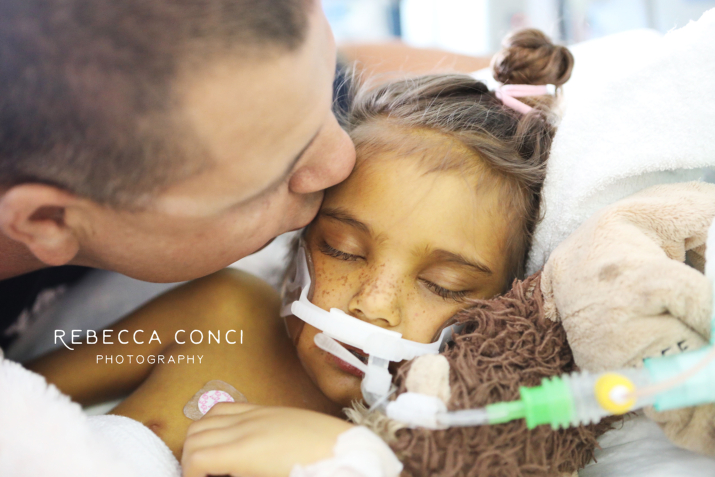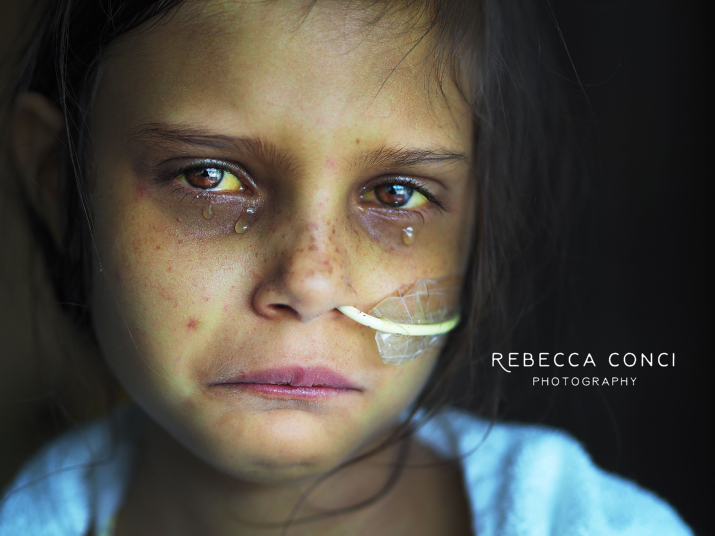This post has been contributed by a truly amazing reader of the blog as part of an ongoing series “What other families do”. You can find more posts in this series here.
It is hard for me to express the enormity of my gratitude to Rebecca for writing this post. I think every parent in Australia should have to read this post. I met Rebecca (online) when she went through the Planned + Present. She also was kind enough to allow me to interview her for the podcast which you can find here. For someone who has so much to cope with, she manages to have such a wonderful outlook on life and such a passionate approach to giving her children the best life she can.
Everyone always says they can never imagine life without their children once they have them. The life I did have without my children was in the photographic industry and in management. I did many courses on how to become the best version of myself, and the best boss I could be. Never did I think I would end up using this learnt information to manage the hundreds of medical appointments, medications and surgeries my children would need, or use my photographic ability to capture their inspirational journey to encourage and inspire others, but that’s now what I do.
Two of my three children have an undiagnosed disease that causes multiple organ failure, failure to thrive, growth deficiency, photosensitivity, osteoporosis, microcephaly, pain, vomiting, dehydration, peg and NG feeding, special diets and requires the administering of hundreds of medications every week. I have watched as both of them have gone from running, to a wheel chair. From being quite strong to being so frail they cannot get out of bed. To singing and dancing to me only reading them stories about it.
I have watched as they have been resuscitated many times. I have tried to keep them alive myself whilst awaiting the numerous ambulances and helicopters to arrive, which feels like hours instead of minutes. I have changed nappies on my growing children and scrubbed both vomit and blood from bed sheets and floors so many times I have lost count. I have held their hands when times were tough and choked back my tears to tell them, they will be ok.
I am grateful every day to still have them. Whatever lies ahead for us and our journey, I am more aware. I am aware of everyday moments and making time to spend with them on a regular basis. So that I not only ‘do’ all the time but enjoy, and for me this requires more work than some, but the reward IS time. Time spent playing, and connecting, and sharing. My yearly goals and habits are all focused around this, and have been for many years now. Our lives and situation changes day to day and week to week.
Whilst their disease is ongoing, the world around us does not stop or slow down. There are times whilst sitting in PICU with one of them or both of them in hospital, that I would love for the world to slow, to give us back the precious time we are loosing, but bills still come in, education is still needed, washing still piles up, and more so if we are having a bad week. Lunches and dinners still need to be planned, prepared and cleaned up, the cleaning, shopping, external commitments and more all need to be organised around hundreds of appointments, and the many commitments and ongoing new issues that arise all the time. So how do I manage to try to stay on top of all that is required of me as a mum with medically complex children, and a five year old?
Well the truth is I don’t always. Seriously ill children go through stages, and depending where you are in their stage changes the way in which you manage it. There are however a few key tools that I use to help in my management of all of this, and some I simply couldn’t live without.
Managing people
Something I learnt early on, which I believe comes before the management of the appointments and the meds, etc, was managing the people around me. The first step that can help in the day to day running of complex children is allowing yourself to let go of people around you that simply cannot, or choose not to, understand your situation. Letting go of people who take energy from you, instead of standing with you, is the first step to allow yourself to really focus on matters at hand instead of managing others emotions, and misunderstandings.
Managing appointments
For managing the hundreds of appointments we have, I rely on our technologically advanced world, and I make the most of this. I used to carry all the relevant information in my head, until I hit decision fatigue, and I literally could not decide on really simple things. It’s not quite the same as being burnt out, but it can be debilitating in a world where we all make many decisions daily. Acknowledging these cracks I started looking for a more efficient process.
I was then introduced to Google Calendar. This is an amazing, simple, yet powerful tool that relieves my mind from the pressures of not only having to store information, but also to tell my husband. So I now book all appts into Google Calendar and invite my husband so we both have them in our separate calendars. I am, however, a fan of pen and paper, and have a calendar in our pantry (med room) and write both the appts, procedures, and all school information on this calendar. Another incredible tool is an app that Royal Children’s Hospital Melbourne have. This is a portal that parents can access which gives you all your children’s medical information. I remember having to wait to read blood results and request to have them printed, this is now all at my fingertips. I use this to reference or double check appointments, surgeries, procedures, and times, as well as check latest blood results, and procedure results. I can often read about a test before the doc has had the chance to talk to me (sometimes not so great).
As technologically advanced as all this is, when visiting the hospital you will find a new person behind the desk, and they will request to see the actual letter of appointment, so I keep these also.
I keep two folders, one for each of the girls. In these folders I store appointment letters, in date order, blood test slips that need to be done – with a date on the top so I know exactly when they are due, any extra prescriptions, and any relevant information I need to have at the time. I use thin A4 plastic pocket folders, as these are the smallest and the lightest and easiest to carry around.
Managing medications
Medications are ordered through only the hospital pharmacy. The girls are on meds that only the hospital can make. I have tried to then split the scripts and collect some locally, and the rest from the hospital, but this is quite messy, and I find it a lot easier to have them all together. I have worked out that the easiest way to manage their meds is to do a monthly order. When I collect the order I book the collection date for one month’s time, then put the booking date in Google calendar. I budget at the start of the month to cover the medical bills, and any extra stock that we require to have on hand. Spew bags, children’s masks, syringes, dressings, etc need to be on hand at all times, and these again need to be collected from the hospital, or you can pay up to three times the price elsewhere- if they have it at all.
At home we have a walk in pantry. We now use this as our med room. With two girls needing meds all day at different time slots I have one child on one side and the other on the other side. I have med lists laminated and velcro’d to the wall behind the meds, with listed times, and what is to be given. I started doing this when there was a full A4 list of what to do daily, but I can easily pull the list off and give it to the ambulance officers, or take it with us if something has happened and we have to take them to hospital, in a hurry. It is also a reference for us when meds change. I pre prepare the bulk of the tablets into a tablet case, so these are readily available. We administer over 50 medications per day, so the trigger for me to make sure I always stay on top of this is simply by seeing when the tablet container is low, and I refill. I have a large drawer full of medications, which is just beside the cupboard where the girls medical folders are. Whilst refilling I always take note if we are running high or low on any particular med, and make note of this in my notebook that I will take with me to the next appointment so we can request an extra script if thats whats needed.
Managing daily routines
My night time routine is extremely important to my state of mind, and allows me to start the day on top, instead of behind. Simple things like washing all syringes and medicine cups every night, means there is not a huge build up. Triggers like the morning kettle for me- allow me to start dissolving medicine whilst the kettle is boiling. These are so ingrained now that it helps to take decisions from me, and if we have had a tough night, even on auto pilot I stick with this, as I know the natural reward is that I am more organised and feel lighter and happier- and we could all do with that!.
Managing information
My notebook. I am, and have always been a fan of pen and paper. I am also a huge lists person. It is absolutely a way for me to free the little space left in my mind, and to feel confident I will not forget about anything. I carry a note book on top of the two folders with me to every appointment. I write everything down. I am kidding no one if I say I could actually retain the information given to me in these appointments. With three children in the one small room, I’m lucky if I can even hear the doctor at times. So I write, I ask them to stop if needed and to repeat the new word I have not heard, and spell if necessary. I refer to my notebook, for any questions that I have pre written down, and I record the hospital height, weight and blood pressure at every visit. I also record the doctor I am with, and of course the date with any instructions I am then to do when I get home.
When I get some down time, I then research the new words or the new information given to me, so I can be as informed as possible. So I know the right questions to ask at the next appointment, and understand more about what the latest information really looks like, and what it means for not only our family, but for my girls as individuals and as little women. I no longer read books, I used to read a lot. I now read about different medical terms, syndromes, symptoms, and try to understand what the future may hold for us all. I read information, and take away what is relevant for our family, as there is a huge world we are no longer apart of. I read and look for ways to slow down, and to handle the next stage we are going through. I am grateful to have created a network of amazing women around me, who really band together to support and fill me with information on anything I need, when I need it. I constantly look for the gaps in my system and come up with solutions on how to improve it, and if I can’t get it first time I keep working on it.
Right now I am working on improving an education system to support the girls. I advocate for my children with determination, love and strength, and when I receive news that tears some of my strength down, I try to reconnect with them and with nature, I find this helps with the processing. I also realise that although my heart is breaking, they cannot always comprehend the news in the same way I can. When I have to deliver this news to them, I keep the information relevant, and I allow them to guide me where they need the conversation to go, not where I want to take it.
Managing emotions
Therapy is also a really important part of taking care of medically complex children. Holding their hands, wiping their tears, holding them down because you know they need the dressing changed or a new line inserted can wear away at even the strongest of people. As a photographer I rely on my camera and my fine art work to allow me to express myself through images. This is important to me, and my processing, and I know this. Anyone going through tough times need a way to feed their own soul. To give you strength, to re focus, to take a breathe.
When I left my job I started photographing our journey. Last year I released a self published photo book, Undiagnosed Through a Mother’s Eye, which won 5 awards at the Australian Institute of Professional Photography. I showcased some of the images at rare disease day at Royal Children’s Hospital Melbourne, and the International Photo Biennale. I have done several public speaking events to share our story, and to help inspire or show how important research really is. I spoke at a private pharmaceutical conference where 120 delegates purchased a copy of my book. This then received attention from international papers and the Project on channel 10, who broadcast our story, and helped us save our home. This not only helped us, but it helps raise the well needed awareness for undiagnosed diseases and how devastating they can actually be.
But to be honest, for me it was simply therapeutic, it allowed me to release my pain, but show the beauty I saw through the darkness. It allowed me to tell a story that hasn’t been told anywhere before, worldwide, and it helped me get through some really dark moments.
Sometimes I grieve for their future pain, but I use this to drive my awareness of just how important everyday is.
I have purchased a copy of Rebecca’s book – Undiagnosed Through a Mother’s Eye and it is a book that I will always keep on my shelf. It shows the intense beauty of a mother’s love, hope in darkness and makes me so grateful for the health of my own children.
I would love for those readers of the blog that can afford to purchase a copy, do so. Proceeds from every book sold will go to funding Jenna and Jayda’s Liver Bear for seriously ill children. You read more about the beautiful Liver Bear project here. Click here to buy the book.
You can follow Jenna and Jayda’s story on Instagram and Facebook.





